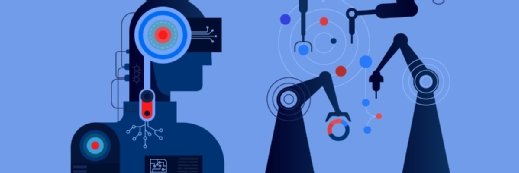
Getty Images
Mayo Clinic Accelerator Announces Second Cohort of Healthcare AI Startups
Mayo Clinic Platform_Accelerate has announced its second cohort of artificial intelligence startups, which will participate in the program to develop and validate their healthcare products.
Mayo Clinic Platform announced that seven health technology startups will make up its accelerator program’s second cohort, which is focused on healthcare artificial intelligence (AI) development and validation.
Mayo Clinic Platform is a strategic, data-driven initiative to enhance healthcare created by Mayo Clinic. Its Accelerate program is designed to contribute to this goal by helping early-stage health AI startups become market-ready.
Mayo Clinic Platform_Accelerate allows participants to consult and work with the organization’s regulatory, clinical, technology, and business experts to support AI model validation and clinical readiness. Program participants will also have access to technical expertise and workshops from Google and Epic, according to the press release.
"The only way we can transform health care is by bringing together clinical experts with technology innovators," said John Halamka, MD, president of Mayo Clinic Platform, in the press release.
By participating in the program, startups gain access to Mayo Clinic expertise and data, but data security and privacy remain top priorities.
"Our Accelerate program combines emerging companies with breakthrough ideas, leaders from Mayo's clinical practice and our unique 'data behind glass' approach to algorithm development," Halamka stated. This approach allows companies to use the data to build algorithms without the data leaving Mayo Clinic Platform.
The seven US-based and international participants in this cohort are exploring opportunities to improve healthcare in various areas:
- AESOP Technology is utilizing machine learning (ML) to improve physician data entry by automating diagnosis input and enhancing medication-related workflows.
- Biotia is pursuing the personalized, data-driven discovery of microorganisms that cause illness through DNA sequencing technology and research into how AI and genomics can help fight infectious diseases.
- Delfina aims to address the maternal health crisis through software that monitors health data to assess pregnancy risks, coordinate with providers, and improve pregnancy outcomes through personalized care plans.
- Dynocardia is leveraging AI and wearables to enable early detection of major health events using data from continuous, real-time blood pressure and advanced heart function monitoring.
- ImpriMed seeks to personalize cancer treatment by validating an oncology platform that can provide individualized predictive information to patients and providers.
- Predicta Med is creating an AI-based clinical decision support tool for the early detection of autoimmune disease to enable timely diagnosis and treatment.
- Subjective, Objective, Assessment, Plan (SOAP) Health aims to enhance clinician productivity and insights to promote efficient pre-diagnosis and diagnosis processes.
Each startup will receive a $200,000 benefit package that includes access to Mayo Clinic’s de-identified datasets, AI model validation frameworks, data science and Food and Drug Administration clearance pathway guidance, and clinical workflow planning support. Accelerate's inaugural cohort recently completed the program, and applications for the third cohort will open soon, according to the press release.
The announcement of the program’s second cohort follows a June partnership between Mayo Clinic Platform and medical technology company Becton, Dickinson and Company (BD). The partnership involves post-market surveillance of the company’s products to fuel innovation and gain insights into the patient experience.
Mayo Clinic also renewed its partnership with health imaging company Visage Imaging last year to research and develop healthcare AI, particularly in the diagnostic imaging space. The agreement extends a previous six-year contract between the two organizations.






